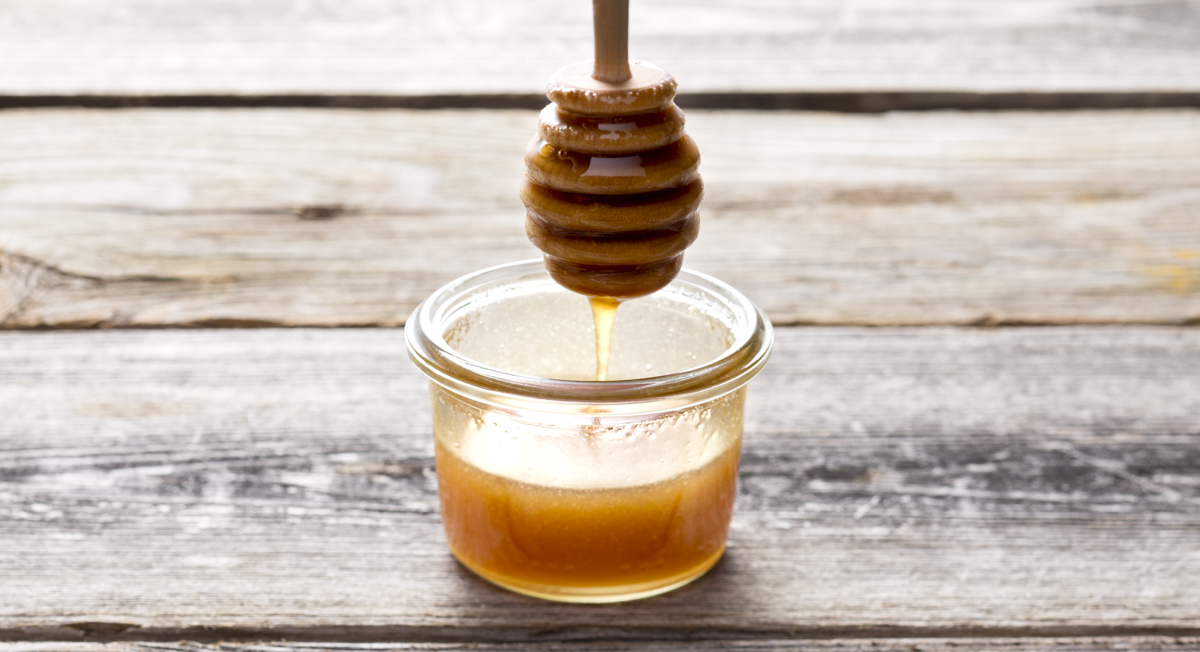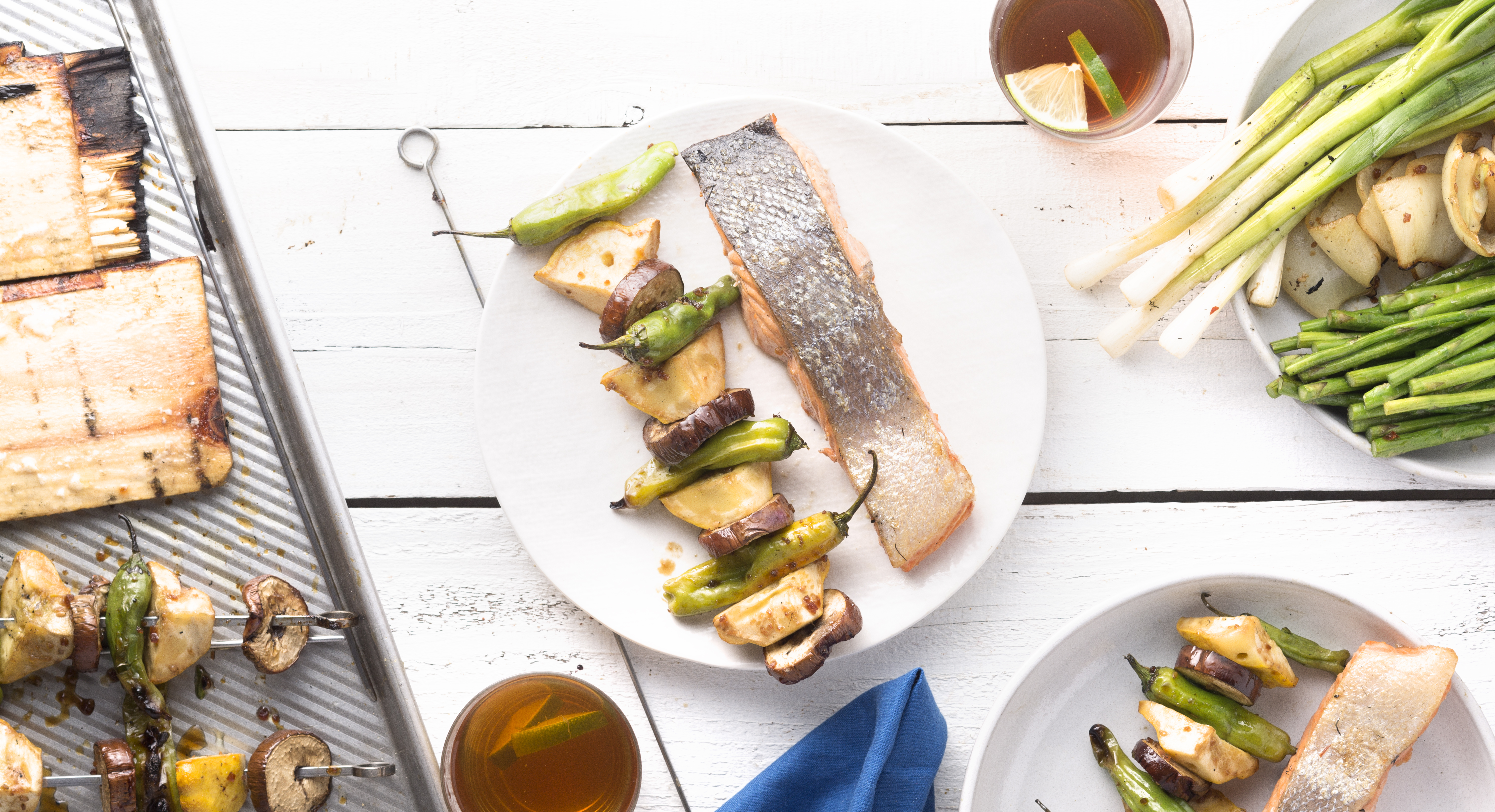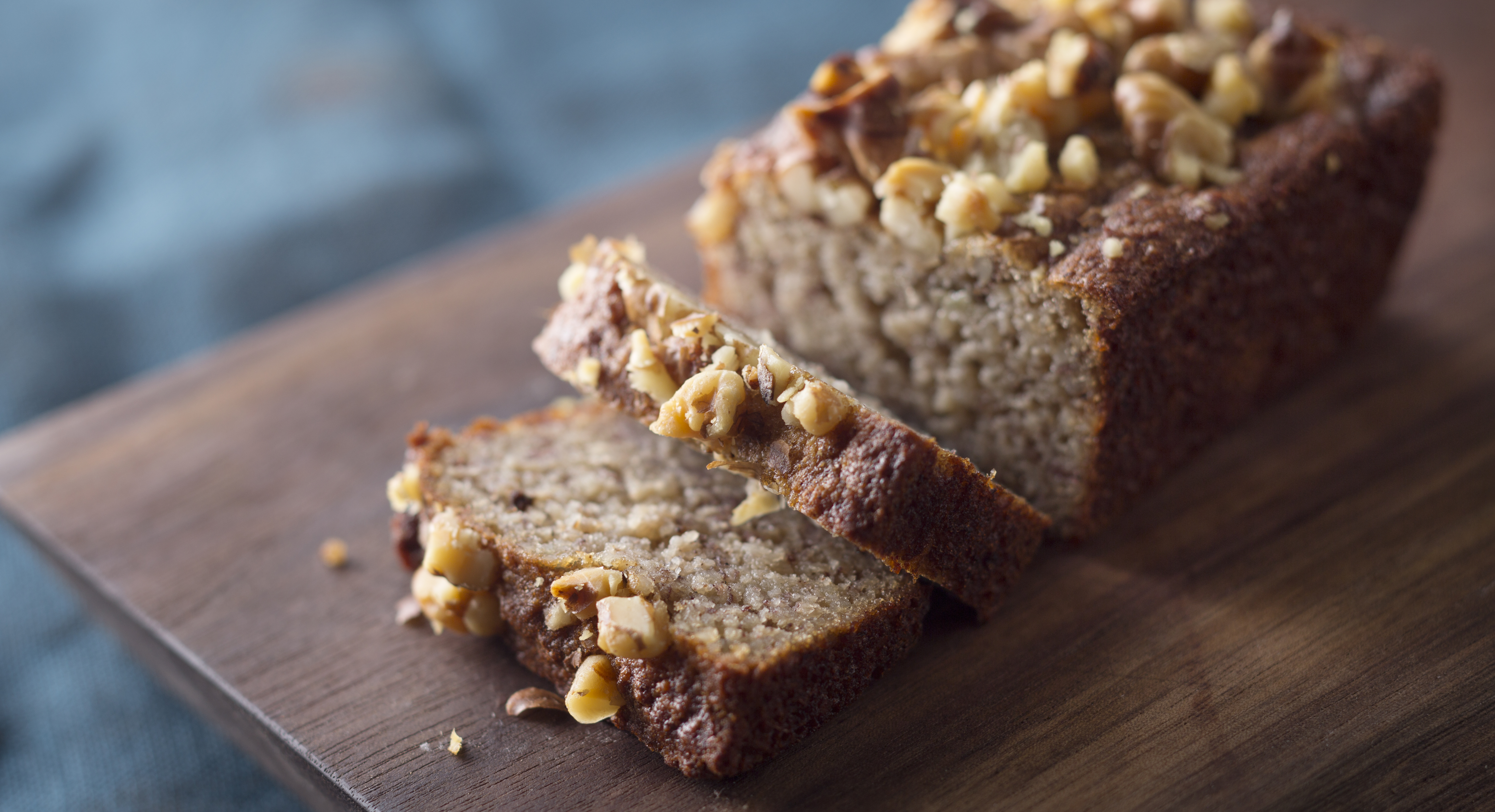Maple Syrup vs. Honey
Publish Date: April 8, 2019
Last Update: February 4, 2026
When you think about maple syrup and honey, two naturally derived, naturally sugary foods, you can’t help but wonder if Mother Nature might have a sweet tooth. While one is an essential for just about any brunch food, the other is downright decadent when drizzled over both sweet and savory dishes (or enjoyed all on its own by spoonful). But what’s especially wonderful about these two natural sweeteners is that they also offer a variety of nutritional benefits like antioxidants and key vitamins—effectively blowing refined sugar out of the water. Learn more with our side-by-side comparison.
What Is Maple Syrup?

Warmer temperatures cause sugar maple trees to turn stored starch into sugar and sap is created as this sugar mixes with groundwater. The sap is collected from a tree by drilling a hole into it and using a tap. Next, the sticky-sweet liquid is boiled to remove excess water and transform it into maple syrup. It takes about 40 gallons of sap to make each gallon of maple syrup, because the sap is only about 2 percent sugar.
Maple syrup is available in four classifications:
- Grade A Light Amber
- Grade A Medium Amber
- Grade A Dark Amber
- Grade B
While each bottle contains the same amount of sugar, the difference has to do with how long the sap is boiled. The darker the color, the more intense the flavor.
Benefits of Maple Syrup
While maple syrup is fairly high in sugar, it offers some additional benefits that refined sugar doesn’t, including minerals and antioxidants. In just ⅓ cup of maple syrup, you’ll get 7 percent of your daily calcium requirement, plus 7 percent of iron, 28 percent or zinc, and 165 percent of manganese.
Maple Syrup Q&A
There’s a little more to your favorite pancake companion than you might realize. Let’s take a look at some common questions about maple syrup.
Is maple syrup vegan?
Yes, maple syrup is vegan since it’s derived from trees, not animals.
Is maple syrup paleo?
Yes and no. Some would say that any and all forms of sugar are a Paleo diet no-no, but others would disagree since the syrup is a natural food that comes from trees. Our advice for Paleo eaters? Use it in moderation.
Does maple syrup need to be refrigerated?
Only after opening. Unopened maple syrup can be stored in your pantry for a prolonged period, but opened maple syrup should be kept in your fridge to avoid mold.
How long does maple syrup last?
Unopened maple syrup can last for years if stored in the proper container. In fact, if it’s stored in glass, it can last as long as 50 years without going bad. Plastic containers last up to two years, and tins are good for about six months. An opened bottle of maple syrup will last for about a year in the fridge.
Maple Syrup Nutrition Facts
Here’s a rundown of the nutritional benefits of maple syrup, based on what you’ll find in a 2-tablespoon serving of Thrive Market Grade A Organic Maple Syrup.
- Calories: 100
- Total Fat: 0 grams
- Total Sodium: 0 grams
- Total Carbohydrates: 27 grams
- Sugars: 27 grams
- Protein: 0 grams
Top Maple Syrup Products
These maple syrup staples are as good as gold.
Thrive Market Grade A Organic Maple Syrup
Our certified pure Vermont maple syrup is harvested from wild maple trees and boasts a beautiful dark color and rich, robust flavor.
Sweetleaf Sugar Free Stevia Maple Syrup
If you’re striving to limit sugar, this stevia-based syrup will deliver the same maple flavor with 0 grams of sugar and only 70 calories per serving.
Coombs Grade A Organic Maple Syrup
This dark syrup is produced late in the season, when the sap’s sugar content is at its lowest. An extended boiling time yields stronger flavor, too.
Recipes with Maple Syrup
We’re sweet on these maple-infused recipes.
Vegan French Toast
Get your French toast fix without dairy with this plant-based recipe that includes nutritional yeast, banana, spelt flour, maple syrup, cinnamon, vanilla, almond milk, and almond butter.

Warm Cacao Smoothie Bowl
Believe it or not, smoothie bowls are just as delicious when served warm. Case in point—this combo of cacao creamer, almond milk, rolled oats, almond butter, and maple syrup.
Twice Baked Sweet Potatoes With Maple Crème Fraiche
Fragrant sage, nutmeg, and maple-spiked crème fraiche make this vegetarian side a star.
Paleo Bacon Cheesecake
The perfect combo of salty and sweet, this Paleo take on cheesecake tops a pecan, date, and almond flour crust with a creamy filling of cashews, maple syrup, and bacon bits, and a cashew butter caramel sauce.
Vegan Fig Carrot Cake
This vegan treat is also Paleo-friendly thanks to a wholesome mix of cassava flour, coconut sugar, maple syrup, coconut oil, carrots, raisins, shredded coconut, and cashew-based cream cheese frosting.
What Is Honey?

Honey is a sweet, sticky substance produced by honeybees using nectar from flowers. Once the bees collect the nectar, it’s stored in the insect’s honey stomach (which is separate from its digestive tract). When the bees return to their hives, the nectar is regurgitated, and the bees that stay in the hive—aka house bees—begin to “chew” the nectar. In that process, the bee’s own enzymes break down the complex sugars in the nectar into simple sugars that are more digestible. That substance is then stored in the waxy cells of the hive’s honeycomb, where water evaporates and a thick syrup known as honey emerges. Why do bees make honey? The short answer is that honey provides them with nutrient-dense food during the cold winter months.
Benefits of Honey
Though also high in sugar, honey is rich in free radical–fighting antioxidants like phenolic acids and flavonoids. Honey is also naturally antibacterial. In fact, a specific high-grade version known as Manuka honey is often used to aid in wound healing.
Honey Q&A
Let’s get to the bottom of your most pressing honey questions.
Is honey vegan?
We’ve covered this controversial topic before, but many vegans don’t consider honey to be vegan-friendly since it’s produced by bees (in other words, it’s an animal-derived food).
Is honey Paleo?
As a naturally produced food, honey, particularly raw honey, is widely accepted as a Paleo food. However, like maple syrup, it has a high sugar content and should be consumed in moderation.
Does honey go bad?
Perhaps our favorite thing about honey is that it basically lasts forever. That’s right, honey is actually the only food that doesn’t spoil. It does, however, crystalize over time, which can be remedied by placing a glass jar in a pot of heated water or in a sink of hot water if in a plastic container. However, to keep honey from crystalizing early, store it at room temperature (honey will crystalize if kept in a place that’s below 50 degrees fahrenheit.
Can dogs eat honey?
You can share most honey (except for raw honey, which runs the risk of digestive issues) with your canine companion in small doses, but be sure to brush your dog’s teeth after consumption to avoid decay.
Honey Nutrition Facts
Here’s a rundown of the nutritional benefits of honey, based on what you’ll find in a 1-tablespoon serving of Thrive Market Organic Honey Bear.
- Calories: 60
- Total Fat: 0 grams
- Total Sodium: 0 grams
- Total Carbohydrates: 17 grams
- Sugars: 17 grams
- Protein: 0 grams
Top Honey Products
These honey buys are the bee’s knees.
Wedderspoon Raw Manuka Honey KFactor 16
A favorite among beauty lovers and holistic devotees, Manuka honey is a premium superfood used in a variety of home remedies. It comes all the way from New Zealand, where it’s made by bees that pollinate the Manuka bush. It’s rare, but available here in its natural, raw, and unpasteurized form to preserve the beneficial live enzymes inside.
Beekeeper’s Naturals B.Chill Hemp Raw Honey
Keep calm and enjoy some honey with this unique blend, which delivers 28 milligrams of high-potency hemp oil per teaspoon (note: hemp oil is free of THC). Add it to a cup of herbal tea or enjoy all on its own before bedtime.
Recipes with Honey
Oh honey, we can’t stop buzzing over these recipes.
Iced Matcha Latte
Go green with this refreshing superfood brew of coconut milk, matcha powder, raw honey, and coconut oil.
Paleo Coconut Flour Pancakes
Looking to step-up your brunch game? These hearty pancakes are made Paleo-friendly thanks to coconut flour, raw honey, and coconut oil.
Raw Honey Granola Cups
This grab-and-go snack is made with oats, maple syrup, peanut butter, honey, and shredded coconut for the perfect chewy texture.
Cedar Plank Salmon With Grilled Veggie Kabobs
Get an omega boost with flaky wild-caught salmon, which is marinated in mirin, coconut vinegar, raw honey, and coconut aminos and cooked on a cedar plank for just the right amount of smokiness.

Almond Honey-Swirl Banana Bread
This simple but delicious loaf comes together quickly with easy muffin mix, eggs, vanilla almond milk, coconut oil, and honey. Just stir and bake!
